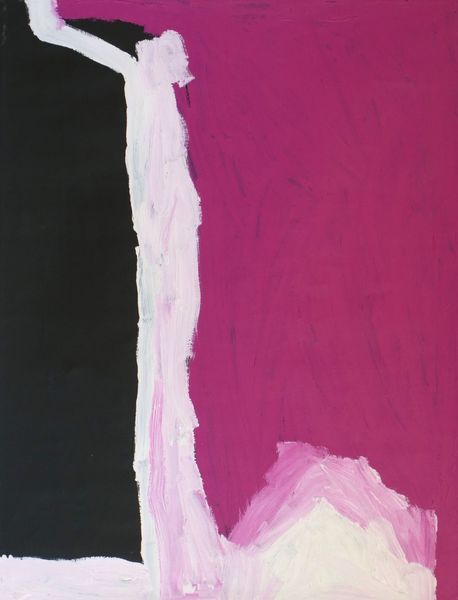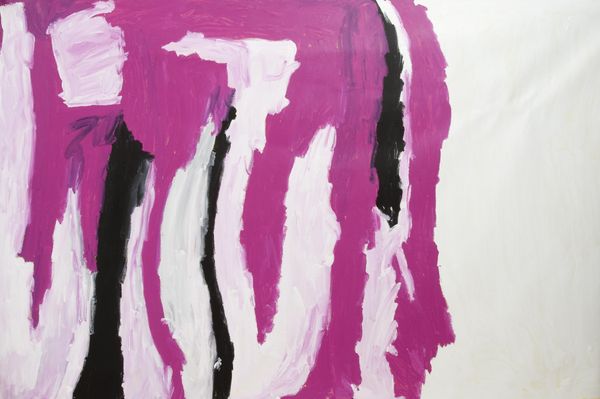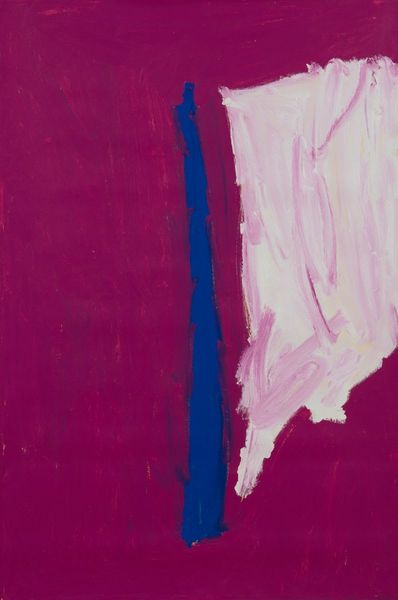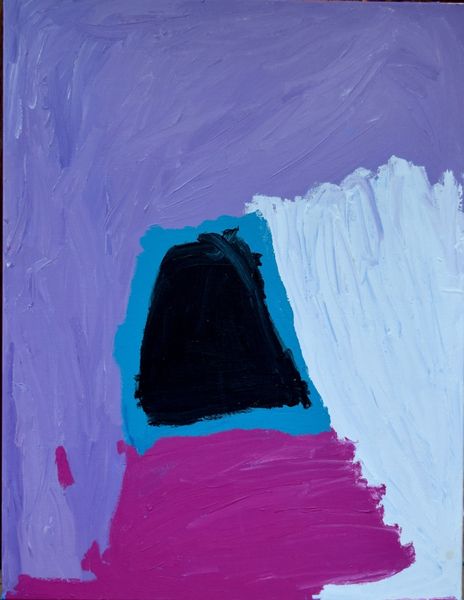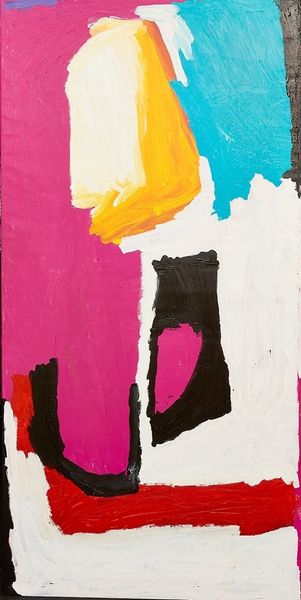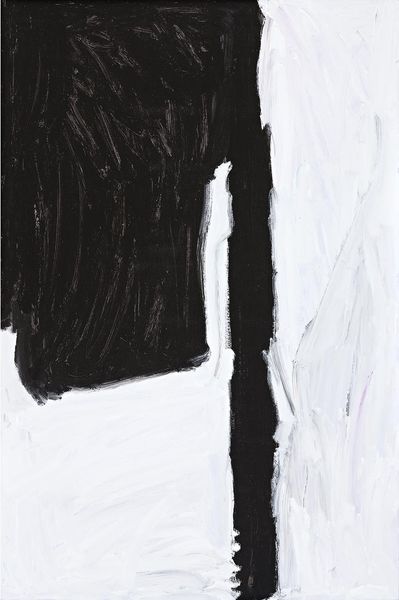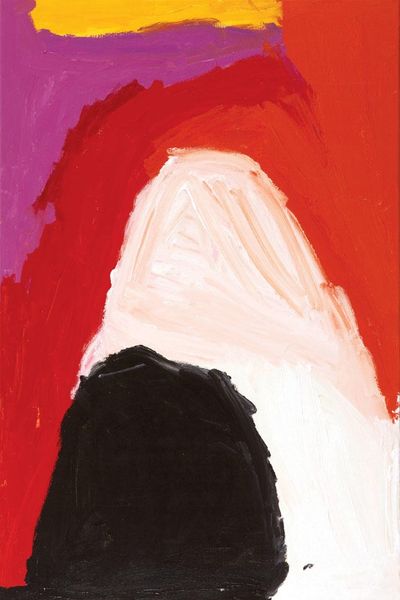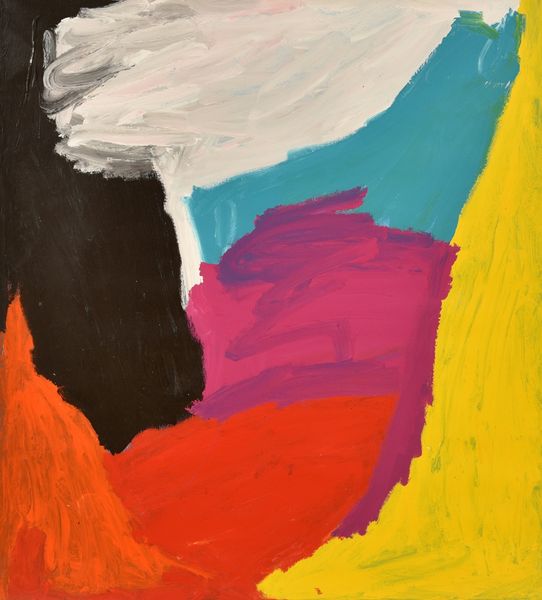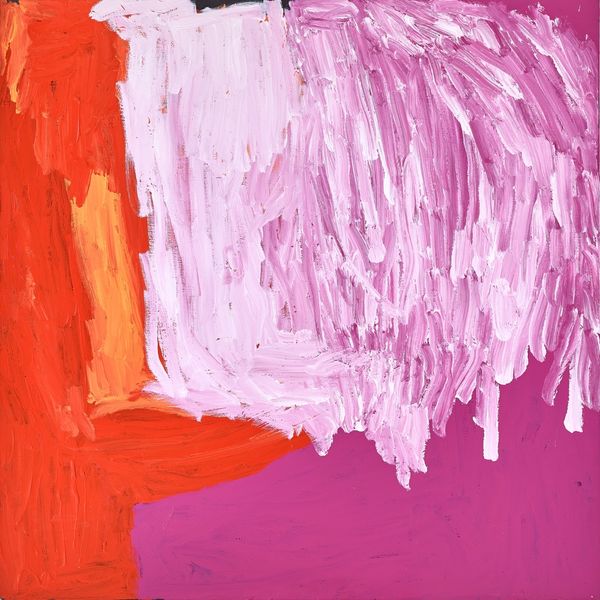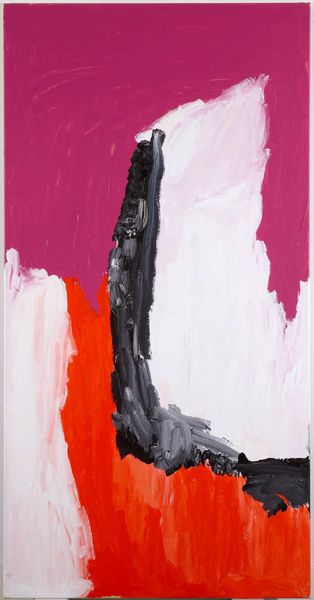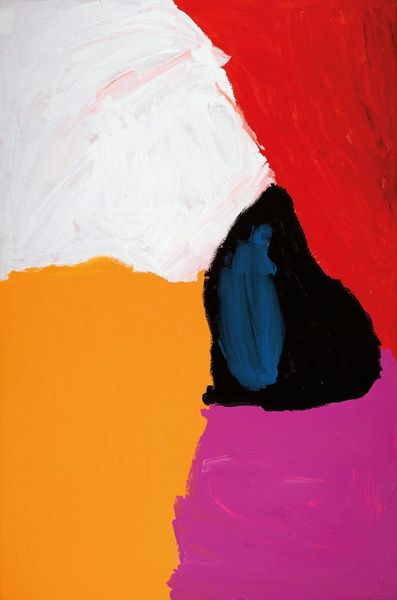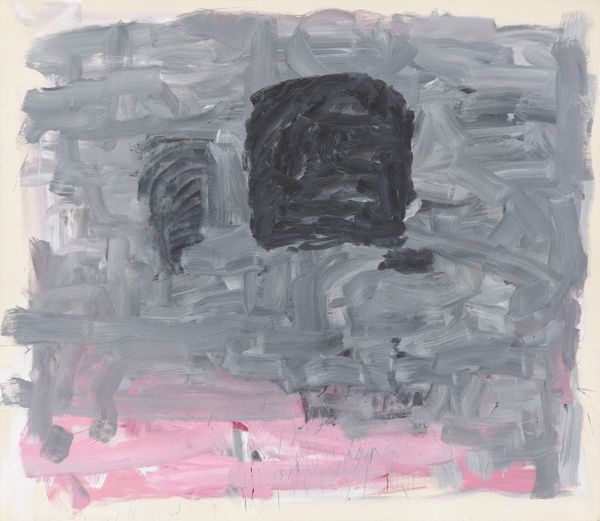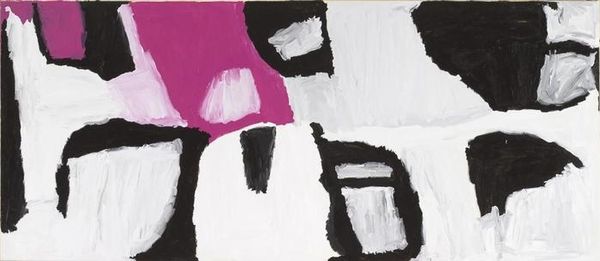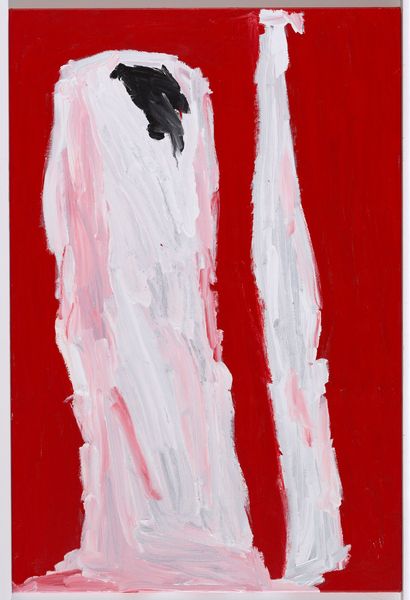
painting
#
abstract painting
#
painting
#
oil painting
#
acrylic on canvas
#
abstraction
#
abstract art
Copyright: Sally Gabori,Fair Use
Curator: Sally Gabori, a Lardil woman from Mornington Island, painted this canvas, "Dibirdibi Country," in 2008, using acrylic and oil paint. Editor: My initial reaction is one of stark contrasts. The raw brushstrokes lay bare the materiality of the paint. What catches my attention is how Gabori uses these planes of vibrant pink against the looming dark forms. There is almost something menacing about it, the large shapes seem to converge, closing down space and light. Curator: Menace, perhaps, stems from an ignorance of place. Mornington Island holds immense significance in Gabori's cartography of memory. This "Country," her homeland, encompasses both tangible and intangible cultural landmarks and ancestral connections to specific places. These shapes on the painting operate on a pictorial language which needs to be understood, lest, misunderstood. Editor: Yes, her visual language immediately brings the spiritual into the artwork. Let’s analyze this painting further. Looking at the stark geometry and sweeping gestures—they certainly challenge any easy classification. I wonder how her unique perspective might inform the painting's aesthetic value beyond the representational. What underlying formal logic guides its composition? Curator: Sally Gabori’s artistic genesis is truly intriguing. Her late entry into the art world—around the age of 80—defies conventional notions of artistic development. What makes it special is how, unshackled by formal training, she invented her own visual language rooted in lived experience. We see in it the history of Mornington Island, and more broadly the struggles, losses and resilience that shaped indigenous Australian experience of the twentieth century. Editor: That sense of a deeply personal history infuses the abstract forms. In terms of technique, what effect does that unmediated brushwork have on the emotional register? I can almost feel the artist's presence in those bold applications. Curator: The tactile quality invites a viewer in to understand Country as experience—both remembered and continuously created. Gabori shows the resilience and adaptation of people to environmental change but also continuity with older symbolic registers. Editor: An exceptional and affecting piece, inviting us to reconsider ways of seeing. I found especially profound the interrelation between land, memory, and self in "Dibirdibi Country." Curator: Yes, indeed. A great testament to how personal cartographies can become universal narratives when told through the honest exploration of line, form and colour.
Comments
No comments
Be the first to comment and join the conversation on the ultimate creative platform.
